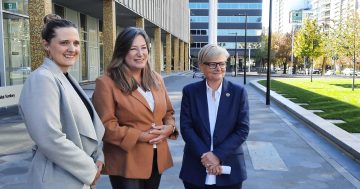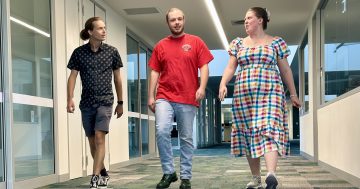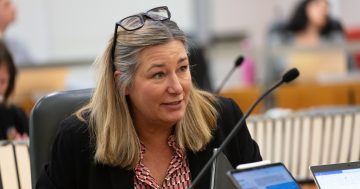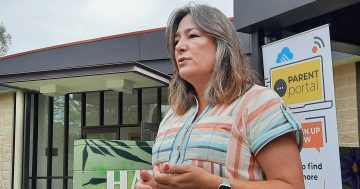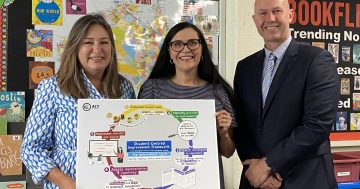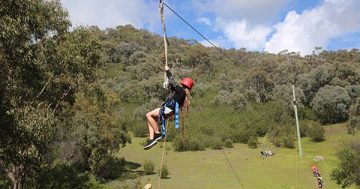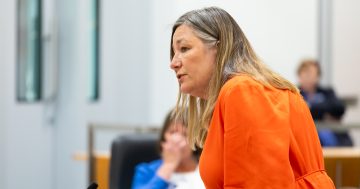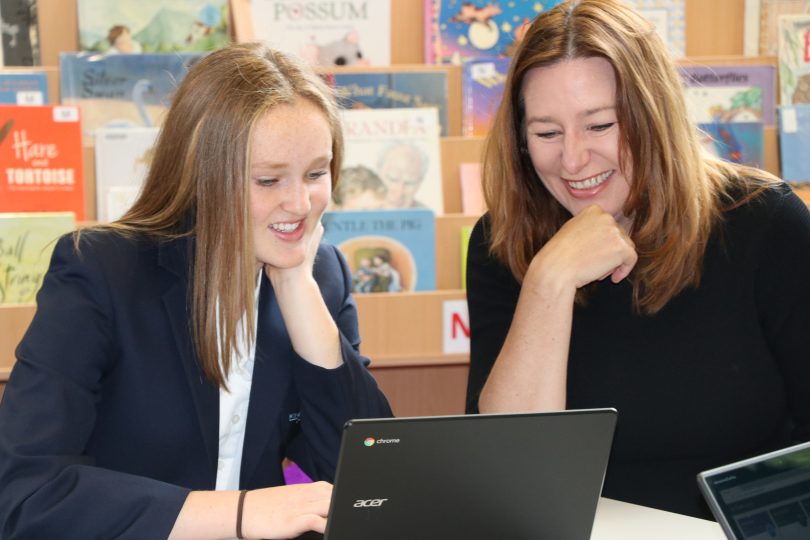
ACT Education Minister Yvette Berry says the ACT Government will provide devices for any child that needs one. Photo: Supplied.
It will be a brave new world for ACT public school students next term, with classes delivered online whether students are at home or not.
The ACT Government says the Territory’s 50,000 public school students and 7000 staff will move to remote learning in Term 2, beginning Tuesday, 28 April.
Education Minister Yvette Berry said only about 2.5 per cent of students were still attending school as the ACT adapted to the COVID-19 pandemic containment measures, and she expected that to continue next term.
For those children who are unable to be at home, a reduced number of school sites will stay open where students will undertake the same online lessons as their peers, supervised by Out of School Hours Care staff supported by teaching staff, and allied health and support staff. Public transport needs will be considered.
The ACT’s four specialist school settings will continue to be available for students enrolled in these schools. Muliyan, the Off Campus Flexible Learning Program, will also be available for those who need it.
The Education Directorate wants families to register their children through an online form if they are unable to have their children at home so it can confirm how many and which school sites will be required.
This will also consider students who are usually in a Learning Support Unit or who have other additional needs.
Additional supports will be in place for vulnerable students studying from home, including appointments with school psychologists.
Calling the remote program a learning opportunity for everyone, Ms Berry said lessons would be delivered flexibly so families did not have to stick to a rigid 9:00 am to 3:00 pm school day, but teachers would not be contactable after hours.
Ms Berry stressed that parents were not being asked to become teachers.
“Our expert teachers will continue to teach and are adapting to do this remotely,” she said.
“Teachers will set a number of tasks for the week for students to complete at home, and they will be checking in with students regularly over the phone, email or through video conferencing.”
Examples of tasks may include watching pre-recorded videos from teachers, listening to music, undertaking physical activity, doing a simple home-based science experiment, reading, online maths activities or making models out of cardboard boxes.
Ms Berry said all tasks would be age-appropriate and not too different from learning that would usually happen in school.
For the younger students who learn through play, teachers will provide packs with materials such as dice and cards for maths games.
She said that learning would still be delivered by individual schools so students and their families remained part of that community.
The government will provide devices and internet access for families who do not have them, and families are urged to contact their schools if they need support.
Ms Berry said the remote program would be reviewed at the end of Term 2 and adjusted as needed for Term 3.
“Term 2 will be an opportunity to learn what remote education looks like for all of us,” she said.
Ms Berry admitted there would be some subjects that could not be delivered online yet, such as woodwork, but teachers would be looking at how they could be in the future.
She said there was no expectation that any students should have to repeat the year.
Year 11 and 12 students will continue to work towards a senior secondary certificate and ATAR, if relevant, with assessment modified so that it remains fair for every student.
Ms Berry said Independent and Catholic schools were running a similar program of work.












